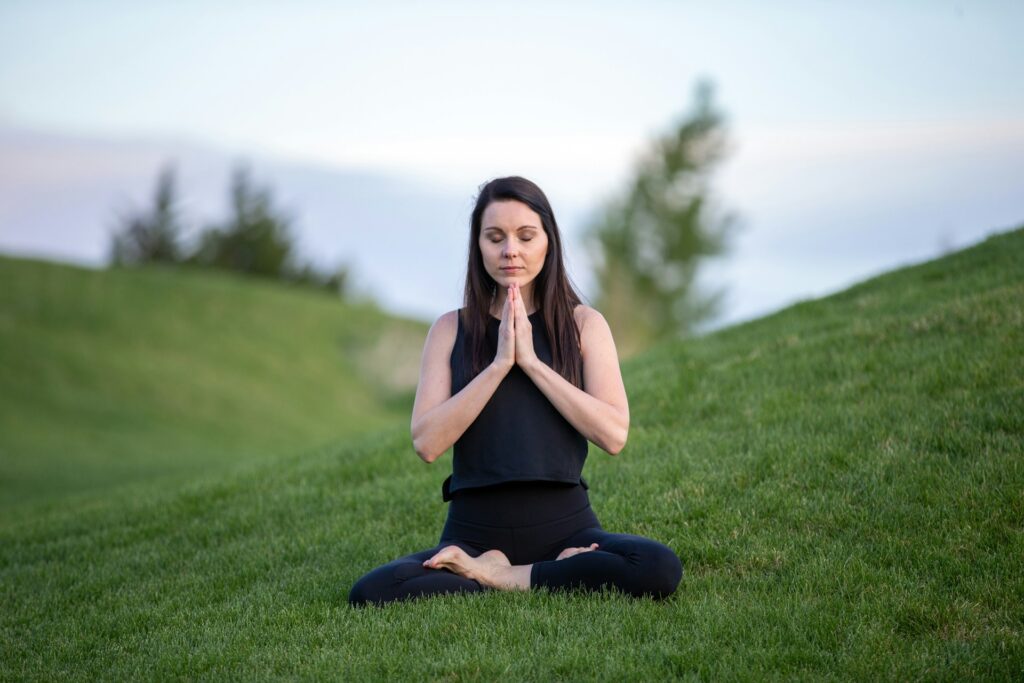In today’s fast-paced world, finding moments of peace and tranquility can seem like an impossible feat. Enter meditation – a practice that has been utilized for centuries to cultivate inner calm, clarity, and overall well-being. In this comprehensive guide, we’ll explore the transformative power of meditation and provide practical tips for incorporating it into your daily routine.
Understanding Meditation
Meditation is a practice that involves training the mind to focus and redirect thoughts. It encompasses a variety of techniques designed to promote relaxation, build internal energy, and develop compassion, patience, and forgiveness.
Exploring Different Meditation Techniques
Mindfulness Meditation
Mindfulness meditation involves paying attention to the present moment without judgment. It often involves focusing on the breath, bodily sensations, or a specific object.
Transcendental Meditation
Transcendental meditation utilizes silent mantra repetition to promote deep relaxation and heightened awareness.
Loving-Kindness Meditation
Loving-kindness meditation focuses on cultivating feelings of love, compassion, and goodwill towards oneself and others through the repetition of affirmations or phrases.
Guided Visualization
Guided visualization involves imagining peaceful scenes or outcomes to promote relaxation and reduce stress.
The Benefits of Meditation
Meditation offers a myriad of benefits for both the mind and body. Here are just a few ways it can positively impact your life:
Stress Reduction: By promoting relaxation and reducing the production of stress hormones, meditation can help alleviate feelings of anxiety and tension.
Improved Focus and Concentration: Regular meditate practice has been shown to enhance cognitive function, including attention, memory, and concentration.
Enhanced Emotional Well-being: Meditation fosters self-awareness and emotional regulation, leading to greater overall happiness and contentment.
Better Sleep: By calming the mind and promoting relaxation, meditate can improve sleep quality and duration.
Reduced Symptoms of Depression and Anxiety: Studies have found that meditate can be an effective adjunctive therapy for managing symptoms of depression and anxiety disorders.
How to Start Meditating
Getting started with meditate doesn’t require any special equipment or prior experience. Follow these simple steps to begin your meditate journey:
Find a Quiet Space: Choose a quiet, comfortable space where you won’t be disturbed.
Get Comfortable: Sit or lie down in a comfortable position, keeping your spine straight and relaxed.
Focus on Your Breath: Close your eyes and bring your attention to your breath. Notice the sensation of each inhale and exhale.
Be Present: As thoughts arise, simply acknowledge them without judgment and gently return your focus to your breath.
Start Small: Begin with just a few minutes of meditate each day and gradually increase the duration as you become more comfortable with the practice.
Frequently Asked Questions
How often should I meditate?
Aim to meditate for at least 5-10 minutes each day to experience the benefits. Consistency is key, so try to establish a regular meditate routine.
Can meditation help with chronic pain?
Yes, meditate has been shown to be effective in managing chronic pain by reducing pain perception and promoting relaxation.
Is meditation suitable for everyone?
While meditate can be beneficial for many people, it may not be suitable for those with certain mental health conditions. It’s always best to consult with a healthcare professional before starting a meditate practice.
What time of day is best for meditation?
The best time to meditate is whenever you can carve out a few minutes of uninterrupted time in your schedule. Some people prefer to meditate in the morning to set a positive tone for the day, while others find it helpful to meditate in the evening to unwind and relax before bed.
Can meditation help with anxiety?
Yes, meditate can be a powerful tool for managing anxiety by promoting relaxation and reducing the activity of the sympathetic nervous system, which is responsible for the body’s stress response.
How long does it take to see results from meditation?
The benefits of meditate can vary from person to person, but many people report experiencing positive effects, such as reduced stress and improved mood, within a few weeks of consistent practice.
Conclusion
In conclusion, meditate is a simple yet powerful practice that can have profound effects on your mental, emotional, and physical well-being. By incorporating meditate into your daily routine, you can experience greater peace, clarity, and happiness in all areas of your life. So why not take a few moments each day to quiet your mind and nourish your soul with the transformative power of meditation?

